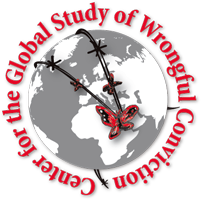The National Academy of Sciences of the United States published it’s Congressionally commissioned report, “Strengthening Forensic Science in the United States – A Path Forward,” in 2009. This was in response to the realization that a lot of what goes on in forensics can be called “junk science.” That is, much of it is not scientifically proven, is not statistically valid, is not reliable, and is very subject to the biases of individual examiners. We have featured the NAS report previously on this blog here, here, and here.
Not surprisingly, the NAS report was met with “stonewall” and dismissive resistance from the extant forensics community, as well as the National Association of District Attorneys. However, the report succeeded in bringing forensics under the scrutiny of scientific discipline, and made the public aware of its many shortcomings and failings. Subsequently, it was announced in 2013 that the US Department of Justice and the National Institute of Standards and Technology (NIST) would jointly form the National Commission on Forensic Science to provide guidelines and recommendations for the conduct and use of forensic technology. The first meeting of the Commission was in February, 2014.
The Commission has recently released its first set of draft recommendations. My review indicates these recommendations have substance. For example, here is an excerpt from the document on Expert Testimony (and this is but a small section of a 30-page document):
6. Experts should not testify concerning conclusions that are beyond the
limits of a laboratory’s testing protocols.
7. Experts should not use invalid or problematic terms in their reports or
when testifying.
8. Experts should not use misleading terms that suggest that the methodology or the expert is infallible when testifying.
9. Experts should not use potentially misleading terms in their reports or
when testifying without a clear explanation of the term’s significance and
limitations.
10. Experts should not use the term “scientific” when testifying unless
the basis for their opinions has been scientifically validated.
Here are links to the individual draft policies and ‘views:’
- Draft Policy Recommendation on Discovery
- Draft Policy Recommendation on Universal Accreditation
- Draft Policy Recommendation on Expert Testimony
- Draft Views Document on Defining Forensic Science and Forensic Science Service Provider
- Draft Views Document on Scientific Literature in Support of Forensic Science and Practice
- Draft Policy Recommendation on Accreditation and Certification of Medicolegal Death Investigation Personnel
Comments on the drafts are due October 27, 2014.
This is all very good news, but let’s not lose sight of the fact that the Commission has no powers of enforcement or oversight, and does not have the ability to actually set standards. But this is a very, very big step along the road to valid and reliable forensics.




















Pingback: #Forensic #Science #Commission Pushbacks against Junk Forensic Experts | FORENSICS in FOCUS @ CSIDDS | News and Trends
It’s about time. Way overdue. Science has evolved but, left Law and Government in the dust. Maybe the Billions spent to wrongfully convict Innocent citizens could be spent to rightfully convict the real perpetrators, and protect the innocent. Science must be improved for criminal justice. Lie Detector technology must be perfected since it is the Lies that wrongly convict the Innocent. “While all other sciences have advanced, that of government is at a standstill – little better understood, little better practiced now than three or four thousand years ago.” -John Adams
Pingback: National Commissions Recommendations On Forensic Evidence | Politiva Justice
Pingback: Will They EVER Fix Forensics ? | Wrongful Convictions Blog